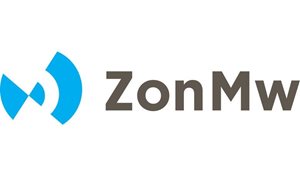13 May 2019
Abstract
Importance
Both low and high gestational weight gain have been associated with adverse maternal and infant outcomes, but optimal gestational weight gain remains uncertain and not well defined for all prepregnancy weight ranges.
Objectives
To examine the association of ranges of gestational weight gain with risk of adverse maternal and infant outcomes and estimate optimal gestational weight gain ranges across prepregnancy body mass index categories.
Design, Setting, and Participants
Individual participant-level meta-analysis using data from 196 670 participants within 25 cohort studies from Europe and North America (main study sample). Optimal gestational weight gain ranges were estimated for each prepregnancy body mass index (BMI) category by selecting the range of gestational weight gain that was associated with lower risk for any adverse outcome. Individual participant-level data from 3505 participants within 4 separate hospital-based cohorts were used as a validation sample. Data were collected between 1989 and 2015. The final date of follow-up was December 2015.
Exposures
Gestational weight gain.
Main Outcomes and Measures
The main outcome termed any adverse outcome was defined as the presence of 1 or more of the following outcomes: preeclampsia, gestational hypertension, gestational diabetes, cesarean delivery, preterm birth, and small or large size for gestational age at birth.
Results
Of the 196 670 women (median age, 30.0 years [quartile 1 and 3, 27.0 and 33.0 years] and 40 937 were white) included in the main sample, 7809 (4.0%) were categorized at baseline as underweight (BMI <18.5); 133 788 (68.0%), normal weight (BMI, 18.5-24.9); 38 828 (19.7%), overweight (BMI, 25.0-29.9); 11 992 (6.1%), obesity grade 1 (BMI, 30.0-34.9); 3284 (1.7%), obesity grade 2 (BMI, 35.0-39.9); and 969 (0.5%), obesity grade 3 (BMI, ≥40.0). Overall, any adverse outcome occurred in 37.2% (n = 73 161) of women, ranging from 34.7% (2706 of 7809) among women categorized as underweight to 61.1% (592 of 969) among women categorized as obesity grade 3. Optimal gestational weight gain ranges were 14.0 kg to less than 16.0 kg for women categorized as underweight; 10.0 kg to less than 18.0 kg for normal weight; 2.0 kg to less than 16.0 kg for overweight; 2.0 kg to less than 6.0 kg for obesity grade 1; weight loss or gain of 0 kg to less than 4.0 kg for obesity grade 2; and weight gain of 0 kg to less than 6.0 kg for obesity grade 3. These gestational weight gain ranges were associated with low to moderate discrimination between those with and those without adverse outcomes (range for area under the receiver operating characteristic curve, 0.55-0.76). Results for discriminative performance in the validation sample were similar to the corresponding results in the main study sample (range for area under the receiver operating characteristic curve, 0.51-0.79).
Conclusions and Relevance
In this meta-analysis of pooled individual participant data from 25 cohort studies, the risk for adverse maternal and infant outcomes varied by gestational weight gain and across the range of prepregnancy weights. The estimates of optimal gestational weight gain may inform prenatal counseling; however, the optimal gestational weight gain ranges had limited predictive value for the outcomes assessed.
Article in Jama
Marleen van Gelder is member of theme Healthcare improvement science.
Nel Roeleveld is member of theme Reconstructive and regenerative medicine,
 An individual participant meta-analysis of over 196,000 women published in JAMA, showed that BMI before pregnancy was related stronger to maternal and infant complications than to gestational weight gain.
An individual participant meta-analysis of over 196,000 women published in JAMA, showed that BMI before pregnancy was related stronger to maternal and infant complications than to gestational weight gain.
Abstract
Importance
Both low and high gestational weight gain have been associated with adverse maternal and infant outcomes, but optimal gestational weight gain remains uncertain and not well defined for all prepregnancy weight ranges.
Objectives
To examine the association of ranges of gestational weight gain with risk of adverse maternal and infant outcomes and estimate optimal gestational weight gain ranges across prepregnancy body mass index categories.
Design, Setting, and Participants
Individual participant-level meta-analysis using data from 196 670 participants within 25 cohort studies from Europe and North America (main study sample). Optimal gestational weight gain ranges were estimated for each prepregnancy body mass index (BMI) category by selecting the range of gestational weight gain that was associated with lower risk for any adverse outcome. Individual participant-level data from 3505 participants within 4 separate hospital-based cohorts were used as a validation sample. Data were collected between 1989 and 2015. The final date of follow-up was December 2015.
Exposures
Gestational weight gain.
Main Outcomes and Measures
The main outcome termed any adverse outcome was defined as the presence of 1 or more of the following outcomes: preeclampsia, gestational hypertension, gestational diabetes, cesarean delivery, preterm birth, and small or large size for gestational age at birth.
Results
Of the 196 670 women (median age, 30.0 years [quartile 1 and 3, 27.0 and 33.0 years] and 40 937 were white) included in the main sample, 7809 (4.0%) were categorized at baseline as underweight (BMI <18.5); 133 788 (68.0%), normal weight (BMI, 18.5-24.9); 38 828 (19.7%), overweight (BMI, 25.0-29.9); 11 992 (6.1%), obesity grade 1 (BMI, 30.0-34.9); 3284 (1.7%), obesity grade 2 (BMI, 35.0-39.9); and 969 (0.5%), obesity grade 3 (BMI, ≥40.0). Overall, any adverse outcome occurred in 37.2% (n = 73 161) of women, ranging from 34.7% (2706 of 7809) among women categorized as underweight to 61.1% (592 of 969) among women categorized as obesity grade 3. Optimal gestational weight gain ranges were 14.0 kg to less than 16.0 kg for women categorized as underweight; 10.0 kg to less than 18.0 kg for normal weight; 2.0 kg to less than 16.0 kg for overweight; 2.0 kg to less than 6.0 kg for obesity grade 1; weight loss or gain of 0 kg to less than 4.0 kg for obesity grade 2; and weight gain of 0 kg to less than 6.0 kg for obesity grade 3. These gestational weight gain ranges were associated with low to moderate discrimination between those with and those without adverse outcomes (range for area under the receiver operating characteristic curve, 0.55-0.76). Results for discriminative performance in the validation sample were similar to the corresponding results in the main study sample (range for area under the receiver operating characteristic curve, 0.51-0.79).
Conclusions and Relevance
In this meta-analysis of pooled individual participant data from 25 cohort studies, the risk for adverse maternal and infant outcomes varied by gestational weight gain and across the range of prepregnancy weights. The estimates of optimal gestational weight gain may inform prenatal counseling; however, the optimal gestational weight gain ranges had limited predictive value for the outcomes assessed.
Article in Jama
Marleen van Gelder is member of theme Healthcare improvement science.
Nel Roeleveld is member of theme Reconstructive and regenerative medicine,
Related news items

Millions of euros for study of laser treatment for glioblastoma
2 April 2021 A research group from Radboudumc and UMC Utrecht is to investigate laser treatment of a rare brain tumor, glioblastoma. 3.9 million euros has been made available for the research by Zorginstituut Nederland and ZonMw, under the auspices of the Subsidy Scheme for Promising Care. go to page
Plugging the gap ZonMw/Health Holland grant
3 March 2020 RIMLS en RIHS researchers Willeke Daamen, Frank Vandenbussche, Joris van Drongelen, Toin van Kuppevelt and Janneke Grutters have been granted 1.3 million euro for the development and evaluation of a new technology to prevent premature rupture of fetal membranes (iPPROM). go to page
The PRIDE Study Evaluation of online methods of data collection
16 January 2020 In Paediatric and Perinatal Epidemiology RIHS researchers Marleen van Gelder and Nel Roeleveld described the recruitment methods and online data collection within the PRIDE Study, the largest Dutch birth cohort study. go to page
Awardees RIHS Junior Researcher round 2020
23 October 2019 Recently, RIHS held an internal call for Radboudumc junior researcher (PhD) positions. This year 6 positions have been awarded. go to page
Merel Ritskes-Hoitinga has been appointed honorary Skou professor at Aarhus University
17 October 2019 Merel Ritskes-Hoitinga has been appointed honorary Skou Professor at the Dept. of Clinical Medicine, at Aarhus University. The aim is to introduce new perspectives to teaching, strengthen relations with leading research units abroad and establish joint research projects and funding applications. go to page